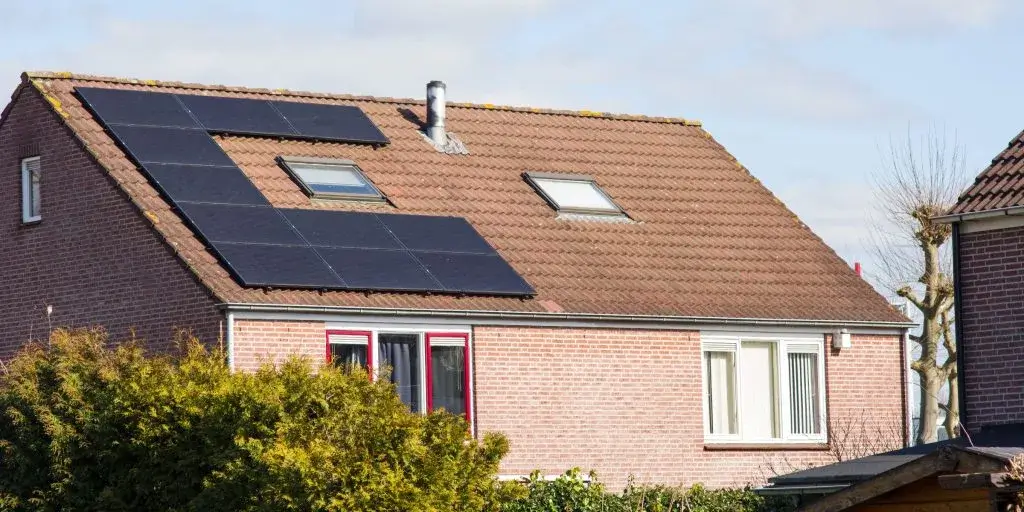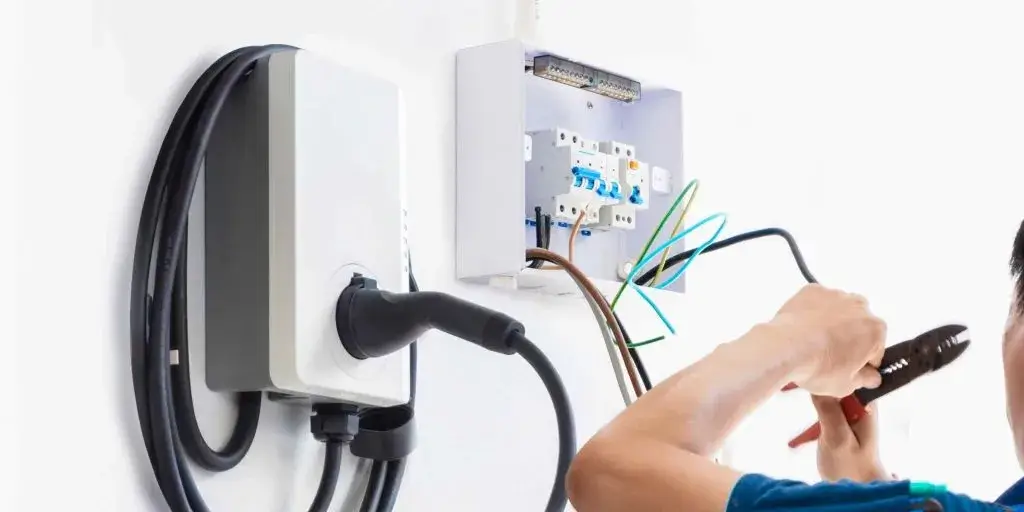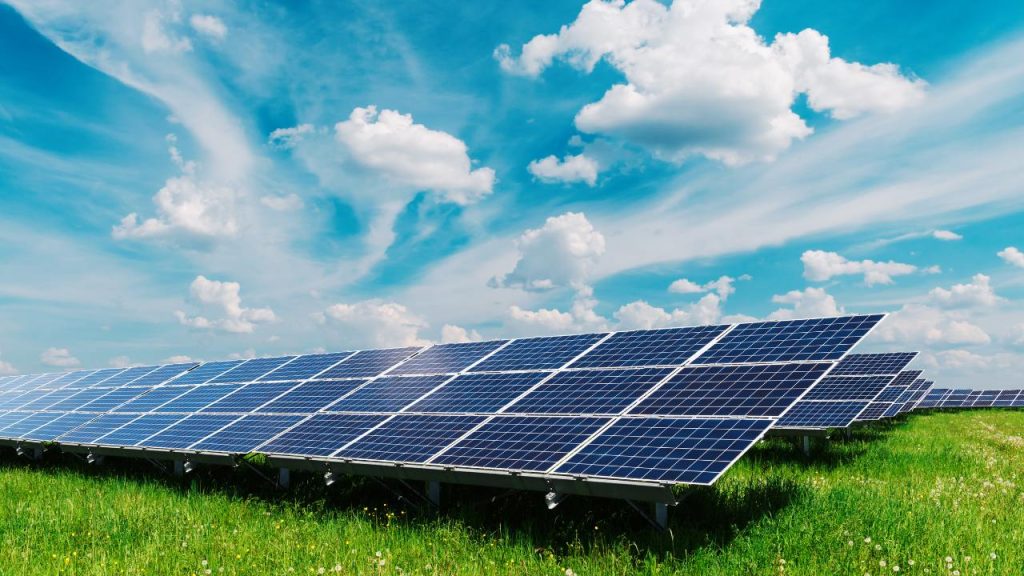Are you thinking about installing solar panels but worried about how they perform in Ireland’s often cloudy climate? Solar panels have become an increasingly popular renewable energy solution, offering homeowners the ability to reduce electricity bills and lower their carbon footprint.
One of the most common concerns among potential solar users is whether solar panels will still generate electricity on overcast days. After all, Ireland’s climate is known for its frequent cloud cover and unpredictable weather patterns.
In this blog, we’ll explore do solar panels work on cloudy days, what factors influence their efficiency, and how to optimise your system for Ireland’s weather conditions.
Do Solar Panels Work On Cloudy Days?
Yes, solar panels do work on cloudy days in Ireland, although their output is reduced compared to bright, sunny conditions. While they perform best under direct sunlight, they can still generate electricity using diffuse light, which is sunlight scattered through clouds. On overcast days, solar panels typically produce around 10 to 25% of their rated capacity.
During lighter cloud cover, they can still operate at 60 to 80% efficiency. Ireland’s cooler climate also helps solar panels run more efficiently, as extreme heat can reduce performance. Thanks to modern technology, especially with high-efficiency monocrystalline panels, solar systems remain highly effective even in low-light weather. This makes solar energy a reliable and practical solution for Irish homes, regardless of frequent cloud cover.
What Affects Solar Panels Performance On Cloudy Days in Ireland?
While solar panels do continue to produce energy on cloudy days, several factors can influence how much electricity they actually generate. Understanding these variables can help homeowners maximise output even under Ireland’s often overcast skies.
Panel Type and Technology

The efficiency of your solar panels plays a crucial role in cloudy weather. Monocrystalline panels are known for their superior performance in low-light conditions compared to polycrystalline or thin-film panels. Some high-end models are also equipped with anti-reflective coatings and advanced surface textures that improve light absorption even when sunlight is diffused. Choosing the right panel type can make a noticeable difference in output during Ireland’s frequent cloudy periods.
Angle and Orientation of Panels
The tilt and orientation of your solar panels significantly impact their performance during overcast days. In Ireland, the optimal tilt angle is typically 30 to 35 degrees, facing south. This position helps the panels capture the maximum amount of diffuse sunlight. Poorly angled or incorrectly positioned panels may lose a large percentage of their potential output, especially when direct sunlight is limited by cloud cover.
Thickness of Cloud Cover
Not all clouds affect solar panels the same way. Light or thin clouds may only slightly reduce solar output, while dense or dark storm clouds can cut performance down to 10–20 percent of normal capacity. Some clouds also allow brief moments of intensified sunlight known as “edge-of-cloud effect,” where panels momentarily receive boosted irradiance. Understanding cloud thickness helps predict fluctuations in daily energy yield.
Shading and Environmental Obstructions
Shading becomes an even more critical issue on cloudy days. Trees, chimneys, or nearby buildings can block what limited sunlight is available, reducing efficiency further. Because the sun is often diffused and at a lower angle, even small obstacles can cause disproportionate losses. It’s important to conduct a professional site assessment to identify and minimise shading risks, especially in Ireland’s urban and suburban settings.
How to Optimise Solar Panel Performance in Ireland?
Although Ireland’s climate is often cloudy and wet, there are several practical steps you can take to ensure your solar panels generate the highest possible output year-round. Small adjustments in technology and setup can lead to significant long-term gains.
Choose High-Efficiency Solar Panels
Not all solar panels perform equally under cloudy conditions. Monocrystalline panels are widely regarded as the most efficient, especially in low-light environments like Ireland. Their high energy conversion rates allow them to generate more electricity even when sunlight is diffused by clouds. When selecting a solar system, investing in premium, low-light optimised panels ensures better performance and greater long-term savings.
Install Panels at the Right Angle and Orientation

The angle and direction of your solar panels have a major effect on their efficiency. In Ireland, panels should typically be tilted between 30 to 35 degrees and face south to capture the most sunlight throughout the day. This setup is ideal for maximising both direct and diffuse sunlight. If your roof doesn’t allow for ideal positioning, a ground-mounted system or frame adjustment might be a smart alternative.
Keep Panels Clean and Well-Maintained
While Ireland’s frequent rain helps keep solar panels relatively clean, debris such as bird droppings, moss, or dirt can still build up and block light. Regular cleaning and visual inspections ensure panels stay clear and functional. Scheduling a professional maintenance check at least once a year can help identify any hidden issues and maintain long-term efficiency, especially during cloudier months.
Add Battery Storage or Grid-Tied Systems
Adding a solar battery system allows you to store excess energy generated during sunny periods for use on cloudy days or at night. This ensures your household remains powered even when panel output dips. Alternatively, connecting your system to the national grid allows you to export surplus electricity and draw it back when needed. Both options improve energy independence and optimise the full value of your solar investment in Ireland’s variable weather.
Conclusion
Understanding do solar panels work on cloudy days is crucial for anyone considering solar energy in Ireland. Despite the country’s overcast climate, modern solar systems still generate significant electricity using diffuse light. Factors like panel type, tilt angle, cloud density, and shading all play a role, but with the right setup and maintenance, solar remains a smart, eco-friendly investment.
If you’re ready to harness solar power regardless of the weather, My Power is here to help. We offer tailored solar solutions optimised for Irish conditions, including high-efficiency panels and battery storage. Contact My Power today to start your solar journey with confidence.
Frequently Asked Questions
Do solar panels work on cloudy days?
Yes, solar panels work on cloudy days by capturing diffused sunlight, which is sunlight scattered in the atmosphere. While efficiency may be reduced, they can still produce up to 25% of their maximum power output, ensuring they contribute to your energy needs.
What affects the efficiency of solar panels during overcast conditions?
The efficiency of solar panels on cloudy days is influenced by factors like cloud coverage, panel angle, and the amount of sunlight available. Advanced solar technology improves their ability to capture diffused sunlight, ensuring better performance even in less-than-ideal weather.
How does shade or debris affect solar panel performance in cloudy conditions?
Shade from trees or buildings and debris on solar panels can reduce efficiency, especially on cloudy days in Ireland. Regular cleaning and cutting back nearby trees or branches can help improve energy generation and keep your panels working effectively.
Can solar panels work effectively in rainy conditions?
Yes, solar panels still produce 20-30% of their optimal output during rain. Rain also helps clean the panels, removing dirt and dust, which can improve efficiency.
Does temperature affect solar panel performance?
Yes, high temperatures can reduce the efficiency of solar panels. Most panels are optimised for 25°C, and temperatures above this can decrease energy output. Cooling methods can help maintain efficiency.
Are there grants available for solar panel installations in Ireland?
Yes, Ireland offers financial support like the SEAI Solar PV Grant, which provides up to €1,800 for residential installations. Businesses can also avail of tax incentives to lower costs.





